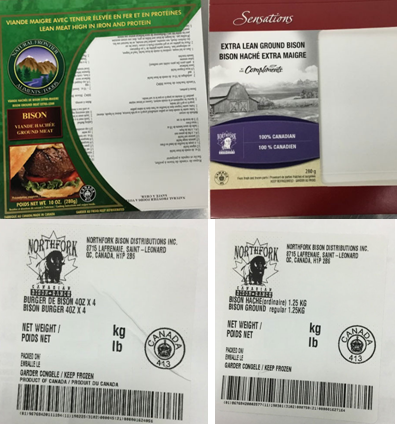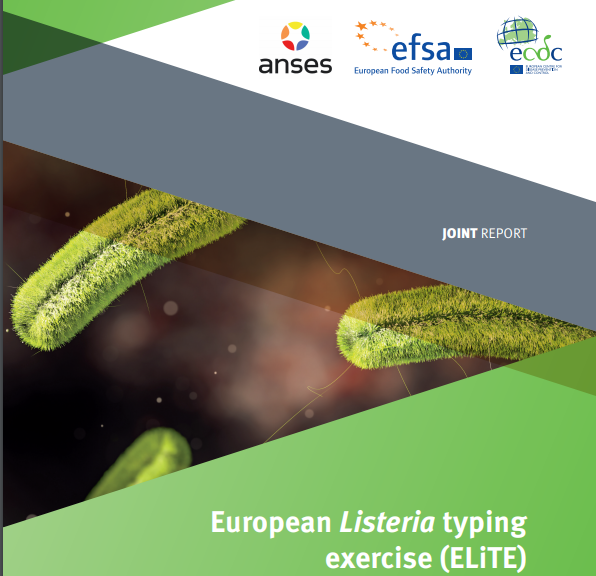The FDA announced another Enoki mushroom recall due to Listeria monocytogenes. Golden Medal Mushroom Inc. of Los Angeles, CA, is recalling all cases of its 200g/7.05-ounce packages of Enoki Mushrooms (Product of Korea) because it has the potential to be contaminated with Listeria monocytogenes. The recalled products were distributed to CA, IL, and TX through produce distributors or wholesalers to retail stores nationwide. The Enoki comes in a 200g/7.05ounces, clear plastic and green package with the description “Enoki Mushroom” in English and labeled “Product of Korea.” The potential for contamination with Listeria monocytogenes was discovered in routine testing by the Michigan Department of Agriculture and Rural Development. The distribution of the product has been suspended. @ https://www.fda.gov/safety/recalls-market-withdrawals-safety-alerts/golden-medal-mushroom-inc-recalls-enoki-mushrooms-because-possible-health-risk
ruth
Golden Medal Mushroom Inc. of Los Angeles, CA is recalling all cases of its 200g/7.05-ounce packages of Enoki Mushrooms (Product of Korea) because it has the potential to be contaminated with Listeria monocytogenes, an organism which can cause serious and sometimes fatal infections in young children
ruth
The FDA announced the investigation of a multistate outbreak of Salmonella Duisburg infections linked to the consumption of Jule’s Cashew Brie, a vegan or plant-based cheese alternative. The firm, Jule’s Foods of Carlsbad, California, conducts a voluntary recall of all varieties of Jule’s Foods products. CDC identified an outbreak of five Salmonella Duisburg illnesses, which is considered a rare Salmonella serotype. All samples taken from ill patients are highly related, according to WGS analysis. Of the five people interviewed, three (60%) reported eating Jule’s Truffle Cashew Brie– the only common product identified. Preliminary results indicated that the Jule’s Cashew Brie products might have been contaminated with Salmonella. The products were sold on the firm’s website and in select retail locations. As a precaution Jule’s Spinach Artichoke Dip and Jule’s Vegan Ranch Dressing are being recalled. These products were sold directly to customers via the internet. @ https://www.fda.gov/food/outbreaks-foodborne-illness/outbreak-investigation-salmonella-duisburg-jules-cashew-brie-april-2021?utm_medium=email&utm_source=govdelivery
Ongoing investigation of illnesses linked to Jule’s Cashew Brie; Do not purchase, eat, sell, or serve
ruth
The Canadian Food Inspection Agency (“CFIA”) reports that Northfork Bison Distributions (Saint-Leonard, Québec) Inc. recalled ground bison products from the marketplace due to possible E. coli O121 and O103 contamination. The following Bison Meat products are subject to this recall: Natural Frontier branded Bison Ground Meat, sold in 280 gram packages; Sensations branded Extra Lean Ground Bison, sold in 280 gram packages; La Terre des Bisons branded Bison ground (lean), sold in 1.5 pound packages; Northfork Canadian Bison Ranch branded Bison Ground Regular, sold in 1.25 kilogram packages; Northfork Canadian Bison Ranch branded Bison Ground Regular, sold in 4.54 kilogram /10 pound packages; Northfork Canadian Bison Ranch branded Bison Ground Regular, sold in 4.54 kilogram /10 pound packages; Northfork Canadian Bison Ranch branded Bison Ground Regular, sold in 0.45 kilogram / 1 pound packages; Northfork Canadian Bison Ranch branded Bison Burger, sold in 20 by 8 ounce packages; and Northfork Canadian Bison Ranch branded Bison Burger, sold in 4 by 4 ounce packages. There have been no reported illnesses associated with the consumption of these products in Canada. However, there have been reported illnesses in the United States linked to these products. This recall was triggered by the company and a recall in the US. @ https://healthycanadians.gc.ca/recall-alert-rappel-avis/inspection/2019/70459r-eng.php
Northfork Bison Distributions Inc. is voluntarily recalling ground bison products from the marketplace due to possible E. coli O121 and O103 contamination. Consumers should not consume the recalled products described below.
ruth
A joint study of the European Centre for Disease Prevention and Control (ECDC), European Food Safety Authority (EFSA), and the European Union Reference Laboratory for Listeria monocytogenes (EURL Lm, hosted by the French Agency for Food, Environmental and Occupational Health & Safety – ANSES) was commissioned. In February 2010, ECDC invited the National Public Health Laboratories (NPHRLs) to start storing all available L. monocytogenes isolates with accompanying background data from human cases of listeriosis voluntarily until the end of 2011. This collaborative study, called ‘the European Listeria Typing Exercise’ (ELiTE). The goal of the study was to describe the molecular epidemiology of L. monocytogenes in humans and food. The most significant human-food cluster involved 30 human and 56 food L. monocytogenes isolates from 15 countries. Fishery products showed a high prevalence of L. monocytogenes with the highest proportion of samples with bacteria counts exceeding microbiological criterion 100 cfu/g. @ https://www.ecdc.europa.eu/sites/default/files/documents/European-listeria-typing-exercise-ELiTE-joint-report.pdf




